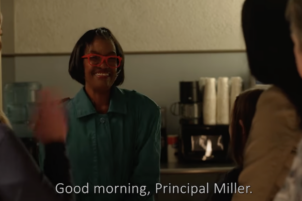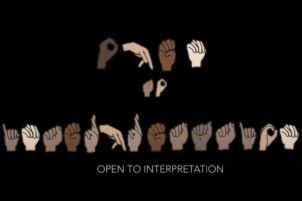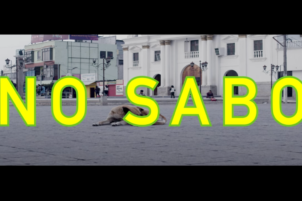Los Angeles, Feb. 9 – Anyone who has worked in Hollywood knows that tenacity and the ability to adapt are critical to success. These are qualities that everyone with a disability implicitly understands and embodies daily. The importance of these traits came through during a panel conversation moderated by David Radcliff, an alumnus of the ABC-Disney Writers Program, held during the 2021 Sundance Film Festival in partnership with RespectAbility and Film Independent. A diverse group of panelists working on both sides of the camera, some with disabilities, others without, shared their experiences working on set with a disability or with people with disabilities and described how they all came together to get the job done.
Alice Austen spoke to her experiences writing and producing “Give Me Liberty” and the difficulties they faced finding funding because of the erroneous belief that authentic casting costs more. This led Austen to produce the film herself rather than wait for someone to tell her yes.
After the success of “Give Me Liberty,” Alice pointed out, “It doesn’t have to be more costly. It does have to be considerate.”
Fellow panelist Hikari, the writer/producer of “37 Seconds,” spoke about the importance of authentically casting a woman in a wheelchair for her debut feature film. “37 Seconds” initially was supposed to be about a girl with a spinal cord injury; however, after casting Mei Kayama, a 23-year-old woman with cerebral palsy, Hikari rewrote the script to reflect Mei’s disability more accurately.
“For Mei, when I met her, it was a different (script), and different disability, and I wanted to adapt it. I saw her for who she was, and a wonderful, beautiful human being, and I wanted to embrace that. I rewrote half the script to get it to where it needs to be. Again, adjusting the story to fit who she was, and I think that kind of made the movie much more authentic.”
Authentic casting begins with authentic stories, a driving factor for panelist Shaina Ghuraya, a SF Film Grant recipient currently developing her first feature film. Ghuraya is insistent on telling real and authentic stories about people with disabilities.
“I can direct things that don’t have it with disabilities or actors with disabilities, but at the same time, I want to because we need representation now. Our people have been oppressed for too long.”
Andrew Reid, the writer/director of the award-winning short film “ASIA A” echoed Ghuraya’s thoughts.
“There are more stories being told about disability by people with disability. There are so many untold stories, and I’m really excited to hear those stories being told. I hope we can all bring them to life.”
Woven throughout the discussion was the recurring theme of persistence. Each panelist spoke to their commitment to bring authentic representations to the screen and the additional pushback that can come when trying to achieve that authenticity. Despite all of our panelists experiencing some form of resistance, they all refused to waiver from the goal.
Nasreen Alkhateeb, a DP with ten years of experience making film and television and a recent stint on Kamala Harris’ campaign, perfectly summarized the required mindset, reminding the audience that “yes” is always around the corner.
“I think you can’t listen to the no’s, and you have to celebrate the no’s. Because every time you hear no, you’re closer to a yes. And there is always going to be a yes. And you just have to keep that in mind. There’s always going to be a yes at the end of the road.”
Despite recent progress for artists with disabilities, Hollywood has a long-standing history with limited and inauthentic representation of people with disabilities across film and television. This panel offered a hopeful picture of the future of filmmaking for people with disabilities, and these panelists and others are helping carve a new path for others with disabilities to follow.







